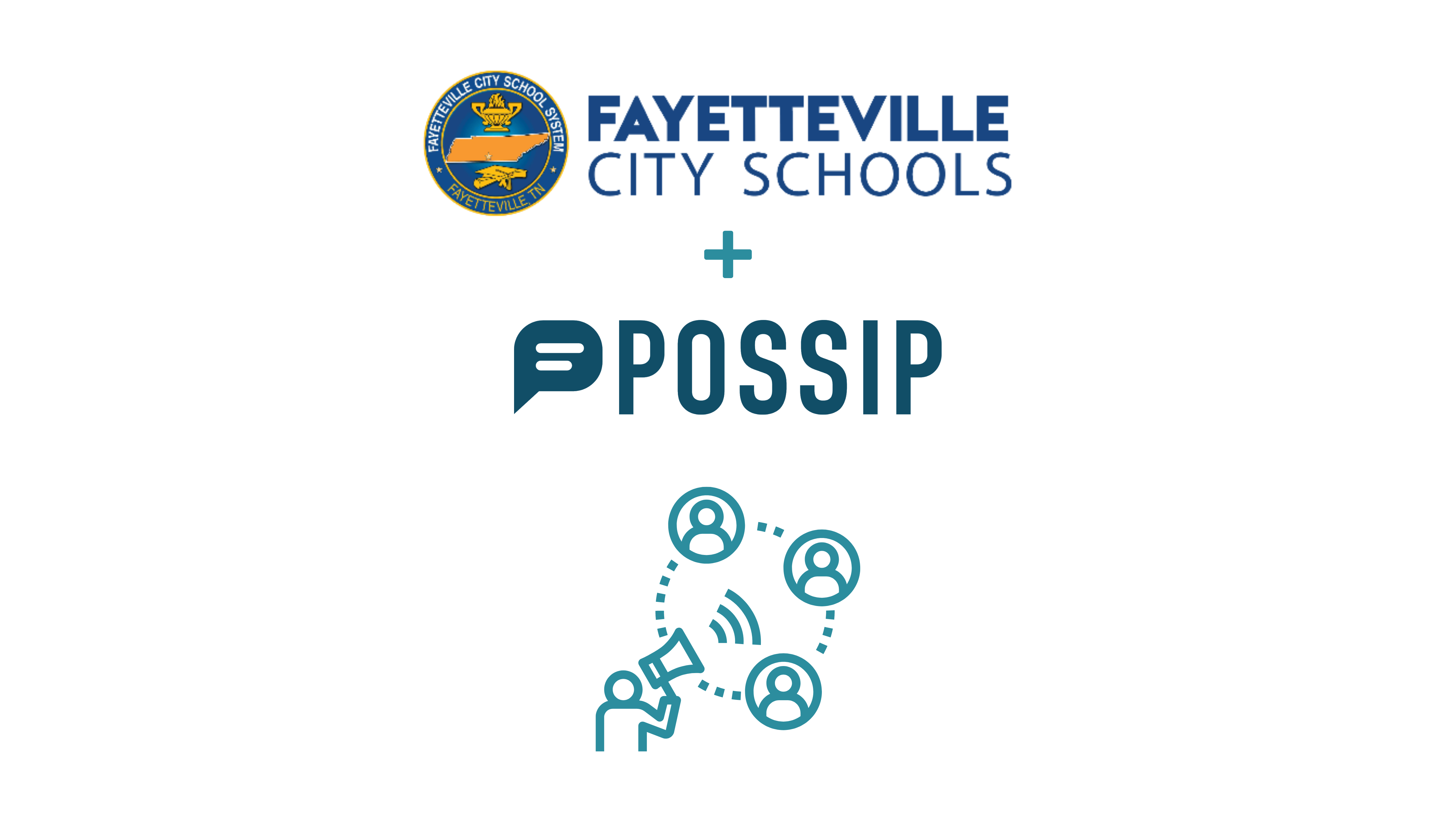Enrollment numbers were dropping. There were theories as to the cause, but the administration didn’t know for sure. Teaming up with Possip, Dr. Claudia Styles, the Supervisor of Federal Programs at Fayetteville City Schools, asked families why and found out that school safety was a top concern.
Caroline Carrello, a Possip intern majoring in Human and Organization Development at Vanderbilt University, explains how Pulse Checks are helping a district improve school safety and mental health awareness and, ultimately, curb decreasing school enrollment rates.
During our recent webinar panel about parents’ worries about their children’s basic needs and safety at school (you can read a recap of the event here!), Dr. Styles shared how her district used Possip to make significant changes.
Administering Surveys With Purpose
Fayetteville City Schools had a problem: declining enrollment rates. Initially they contemplated crafting their own survey to uncover the reasons but soon realized many limitations. Feeling stuck in a cycle of constant guessing regarding the declining enrollment, they decided to ask families using Possip. Together, we tailored a comprehensive community survey, refining questions to unearth the reasons behind the enrollment drop.
To Dr. Styles’ surprise, the feedback didn’t align with their initial assumptions, revealing previously unseen factors influencing families’ decisions. Parent feedback is often overlooked when trying to solve problems in schools. Asking parents the right questions to receive their feedback is crucial for schools to understand what the real issues are. This revelation sparked action, enabling Fayetteville City Schools to address underlying issues effectively. With enrollment now on the rise, Dr. Styles credits Possip for empowering them to delve deeper into parental perceptions and take proactive measures.
Digging Deeper Into Parent Needs and Concerns
Dr. Styles underscores the importance of school safety trends, an area where Possip’s insights prove invaluable. Reflecting on the impact, Dr. Styles shares,
“Possip really has been instrumental in the job I am doing. I use it for my needs assessments on all of our applications (PreK, Consolidated Funds, CTE, and District Plans). I use the data for our monitoring tools and our end-of-year evaluation reports. It has also been instrumental in providing the ‘proof’ needed to spearhead many of our programs. All other surveys that I used simply gave a basic Yes, No, Maybe type response and you could not ‘read into’ the feedback. You just had to guess what was behind the response. The open-ended option really allows us to see inside the minds of our parents and that IS A GAME CHANGER! Thanks for what you do to help us educators. :)”
This testimonial underscores how Possip’s open-ended feedback mechanism transcends conventional surveys. With Possip, stakeholders can share the nuances of parental perspectives, ultimately fostering a safer and more supportive atmosphere.
School Safety and Mental Health Awareness at Fayetteville
Dr. Claudia Styles sheds light on the critical issues of school safety and mental health within their educational community. Recognizing the impact of bullying and the overall school climate on students’ well-being, Fayetteville took proactive steps to address these concerns. Through a grant initiative, they were able to hire three social workers who implemented innovative strategies, including weekly community talks where students could express their feelings in a safe environment.
The data collected using Possip allows Fayetteville to pave the way for long-term success. Dr. Styles shares how the data and insights from Possip surveys help to strengthen their grant applications. Additionally, Fayetteville initiated parent training sessions, leveraging feedback from Possip surveys to tailor their programs effectively. With virtual trainings and targeted interventions, Fayetteville City Schools continues to prioritize the safety and mental health of students, fostering a supportive and inclusive learning environment.
Dr. Claudia Styles and Fayetteville City Schools use Possip as a tool to navigate obstacles and enhance their educational environment. Their experience showcases the power of collaborative feedback in driving innovation and shaping a brighter future for students and educators. Dr. Styles emphasizes the importance of open-ended questions, a feature that sets Possip apart. By leveraging these responses, Fayetteville City Schools can identify patterns and glean valuable insights, empowering them to take decisive action and address the needs of their community effectively.
Here are additional resources to combat bullying:





